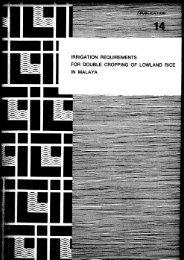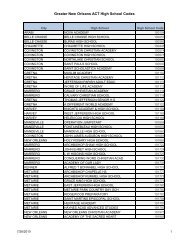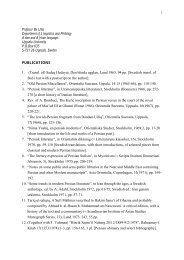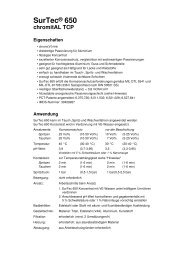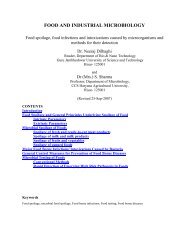On the Future of Indigenous Traditions - Munin
On the Future of Indigenous Traditions - Munin
On the Future of Indigenous Traditions - Munin
Create successful ePaper yourself
Turn your PDF publications into a flip-book with our unique Google optimized e-Paper software.
where we may have to take Weber’s explanation <strong>of</strong> ‘tribe’ and <strong>the</strong>ir political<br />
association.<br />
3.2. The notion <strong>of</strong> political association <strong>of</strong> <strong>the</strong> Adivasis<br />
& its place in <strong>the</strong> nation and state legislations<br />
In this and <strong>the</strong> following sections I shall focus, firstly on <strong>the</strong> concept and historical<br />
development <strong>of</strong> phyle –<strong>the</strong> political association– by employing Max Weber’s model<br />
<strong>of</strong> “tribe” for Adivasis’ case in Jharkhand; secondly, <strong>the</strong> issue <strong>of</strong> its legitimacy in <strong>the</strong><br />
present legislation; <strong>the</strong> third, importance and scope <strong>of</strong> this association within <strong>the</strong><br />
Adivasis <strong>the</strong>mselves will be discussed towards <strong>the</strong> end.<br />
According to Weber <strong>the</strong> government systems can be classified into three broad<br />
categories: Traditional authority <strong>of</strong> kingship or monarchy, which is gaining that<br />
authority through inheritance <strong>of</strong> blood line; secondly, <strong>the</strong> charismatic leadership, who<br />
gains that position through his (/her) own merit, and lastly; lastly <strong>the</strong> bureaucratic<br />
system which elects <strong>the</strong>ir leader through modern elective system. Among, this<br />
bureaucracy is considered to be <strong>the</strong> best form <strong>of</strong> government today, combined within<br />
<strong>the</strong> parliamentary structure. To place <strong>the</strong> Adivasis, referred to as tribes in <strong>the</strong> social<br />
and political context <strong>of</strong> <strong>the</strong> country, it would be important to place <strong>the</strong>m in a broader<br />
context to be able to point <strong>the</strong>ir distinctiveness with o<strong>the</strong>r social groups.<br />
If we try to look at what influences <strong>the</strong> governance <strong>of</strong> any <strong>of</strong> <strong>the</strong> above categorized<br />
government systems we have to see what Weber himself has to say. The case <strong>of</strong> India,<br />
is obviously <strong>the</strong> parliamentary democratic bureaucratic system. In this context Weber<br />
observes <strong>the</strong> Caste and Tribe in his essay 81 , when he says, “As long as a tribe has not<br />
become wholly a guest or a pariah people, it usually has a fixed territory.” But for <strong>the</strong><br />
caste he says, “A genuine caste never has a fixed territory”, having differentiated <strong>the</strong><br />
two groups on <strong>the</strong> grounds based on <strong>the</strong> Veda categorization <strong>of</strong> <strong>the</strong> Hindu social<br />
hierarchy system. 82 In this essay Weber fur<strong>the</strong>r makes an interesting and important<br />
observation on India’s Caste and Tribe’s social organizations, when he says,<br />
81<br />
H.H. Gerth and C.W. Mills, Max Weber: Essays in Sociology, (London: Routledge, [1948], 1991),<br />
398.<br />
82<br />
Ibid., 397.<br />
58





